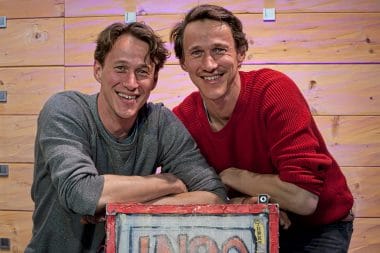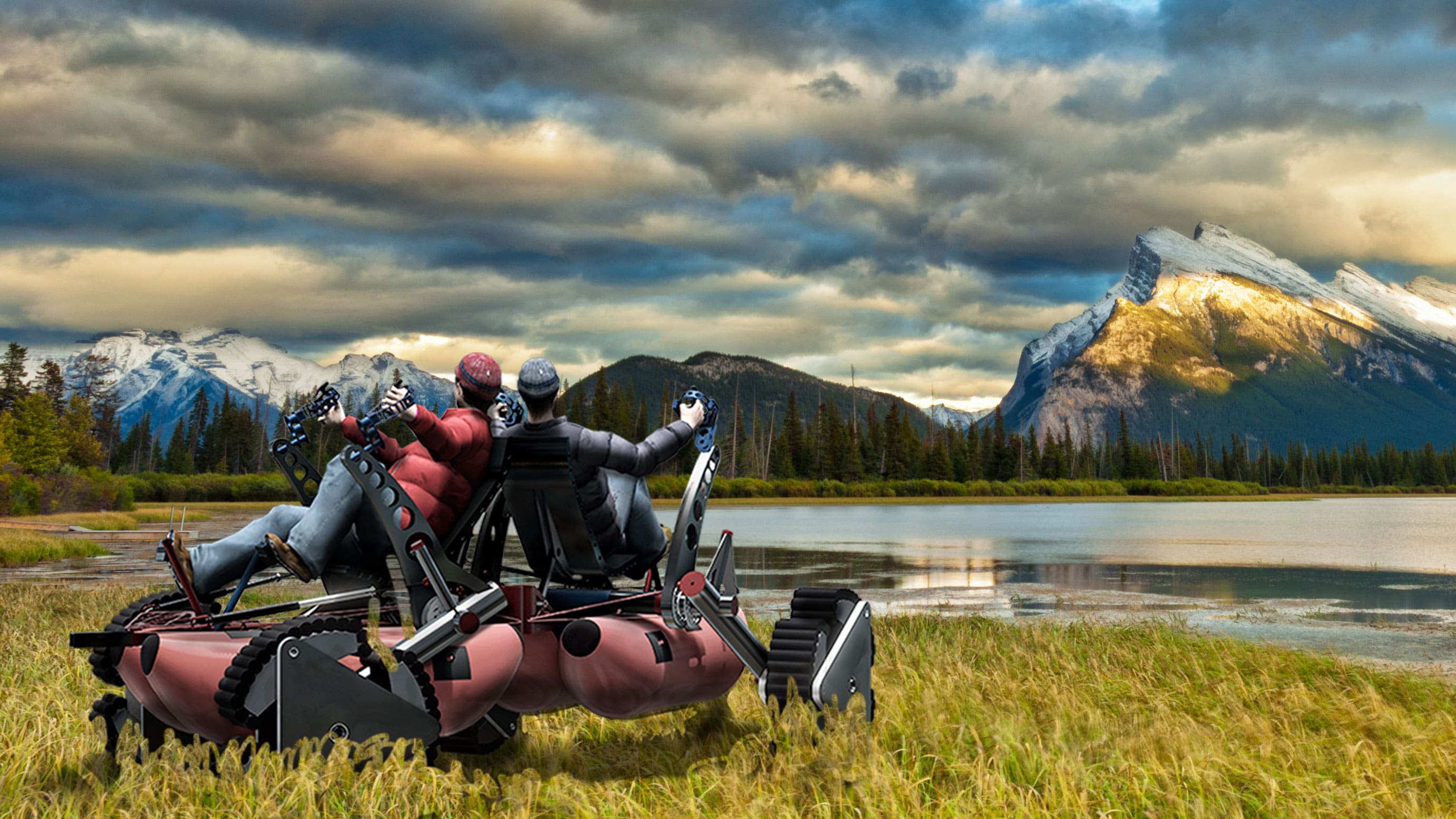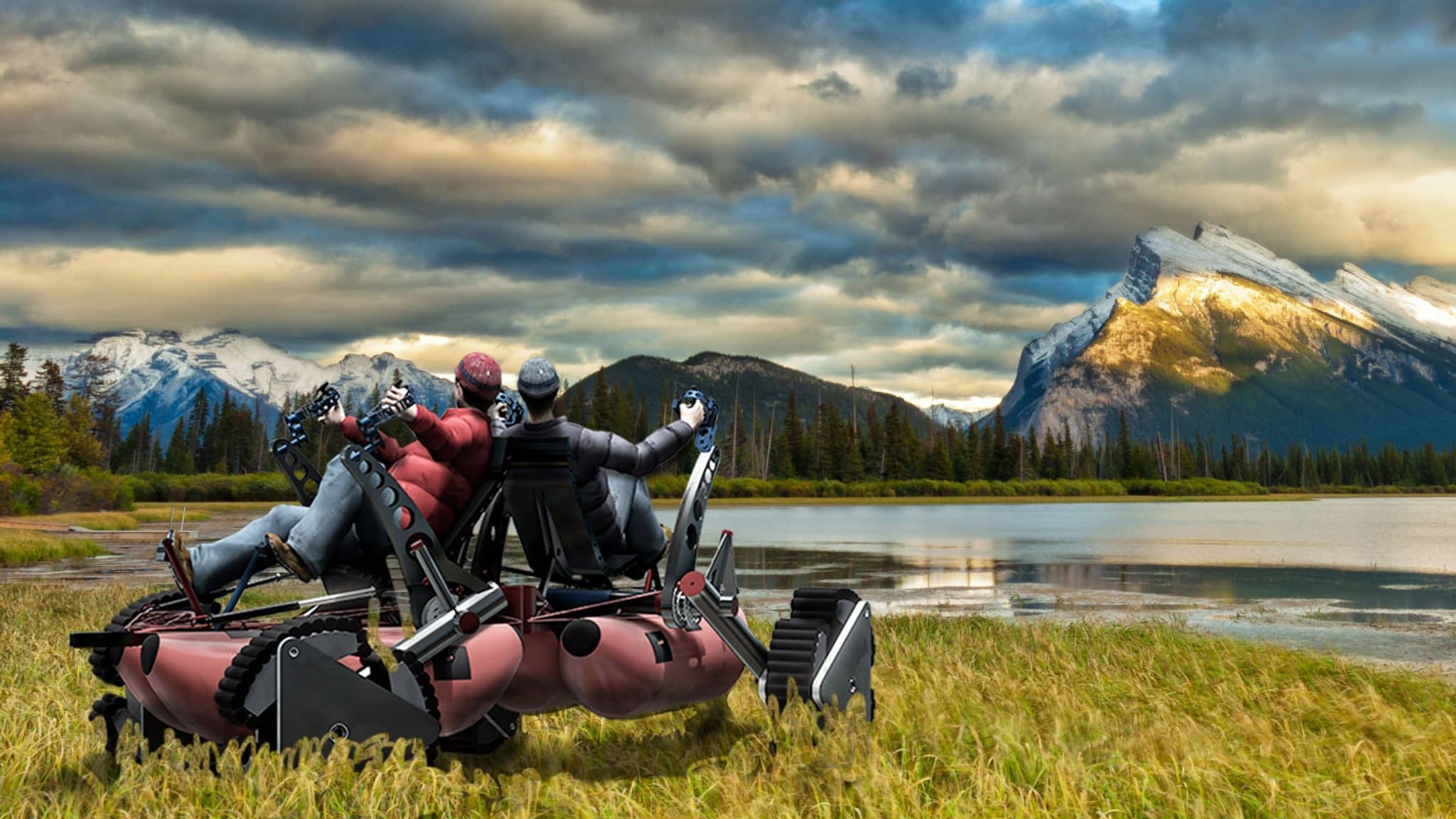The twin brothers Paul and Hansen Hoepner are adventurers in search of extreme situations. After they had already taken one or two longer bike tours together, they cycled together from Berlin to Shanghai in 2012. A distance of more than 13,500 KM with 60 kilograms of luggage.

In 2015, a trip around the world followed. The special thing about it was that they started the journey without money and financed it with self-made souvenirs with materials from the street as well as casual jobs.
Now the next experiment is on the agenda: With a self-built, pedal-powered amphibious vehicle called Urmel, they want to drive 4,000 KM through Alaska .
In this interview, we talk to Paul Hoepner about interesting countries and how to prepare for the adventure in the ice.
On your adventure “Around the World in 80 Days – Without Money” you got to know some countries. Where did you personally like it best?
That varies. Since we are more Nordic types, we liked Canada very much. Canada is also unbeatable when it comes to hospitality. I have rarely experienced a country where you are practically passed from door to door.
If you are looking for border experiences and a little adventure, India can certainly be recommended. It is exciting to observe how different cultures collide here. That’s a huge difference to the Western cultures in North America or Europe.
At least I wouldn’t recommend someone who has no travel experience at all to live on the streets in India. In Canada, on the other hand, it is quite possible to travel around without money.
Are you still in contact with people you met on the trip?
Nam from Bangkok later even studied in Germany and we were able to help her find an apartment. We still have a very close connection – even though she is now back in Thailand . Thanks to social media, however, people still sporadically keep in touch with many others.
Hansen fell ill with dengue fever on the trip. This is also very common in popular travel destinations such as the Maldives. While reading, I had the feeling that the disease had hit extremely hard here. Was there ever a conversation with the doctor, who then said that the outbreak was particularly severe due to the weakened bodies of the long journey?
There are certainly many reasons for this. Of course, the physical condition after the long journey could also have played a role. But certainly also the medical mistreatment in Moscow, because the cause was not known and therefore it could not be treated properly.
In the case of dengue fever, it varies from person to person. It would also be possible that you had it for the second time and then it breaks out more strongly. It is often recommended not to go to these areas at all if you have already been ill once.
Do you actually go on vacation “normally” or do you always have to have a little adventure with you?
We are already on “normal” vacation. I was just on the French Atlantic coast for a few days and looked at the landscape near Bordeaux . Although I also hitchhiked there. So there has to be a little adventure.

The next adventure is coming up. You are planning a journey – 4,000 KM through Alaska – with a self-designed and built amphibious vehicle called Urmel. – How did you come up with this idea?
It’s a combination of two dreams: We’ve always wanted to go to Alaska because this “call of the wild” is so strong in our country. On the other hand, we have always wanted to build a vehicle that can drive anywhere and contribute our skills to the development there.
The combination of both coupled with our outdoor experience finally led to the project.
You postponed the trip from August to December. Will it make it even colder? To what extent does this influence or complicate your planning?
It doesn’t actually get any colder, as we have planned to stay in Alaska until the end of winter anyway. Our goal was also to be on the ice, hence the project name “Two in the Ice”. The only minor difference is that we will not reach the Arctic Circle until the new year, and thus the days are already getting brighter again.
How do you prepare for the stresses? On your trip around the world, you could have “theoretically” broken off and pulled out the emergency credit card.
A large part of the preparation is certainly our previous trips. The practice and the knowledge that you can function well together in difficult situations. That you have gained experience with your own resilience limit – physically and mentally.
Our panic threshold is very high, especially when we are on the road together. That’s why we feel ready to tackle such a project.
Of course, such an adventure trip costs a lot of money. How do you finance yourself and how can you be supported?
In addition to our sponsors, we have a donation option on our website (hoepner-hoepner.de/support/) We always display it in our Youtube vlog . In addition, we will soon be able to be supported via a livecam in our workshop. It works like this: There is a piggy bank in front of the webcam and when you pay one euro you unlock the webcam, the piggy bank drives through the workshop and you can watch us at work.


